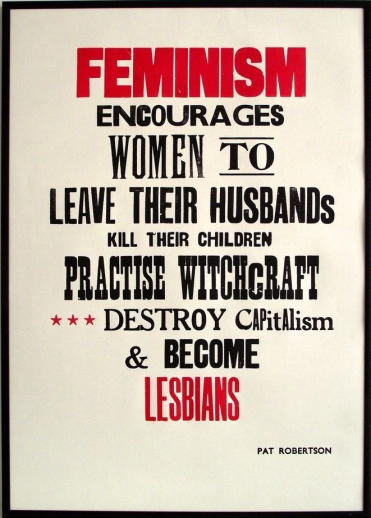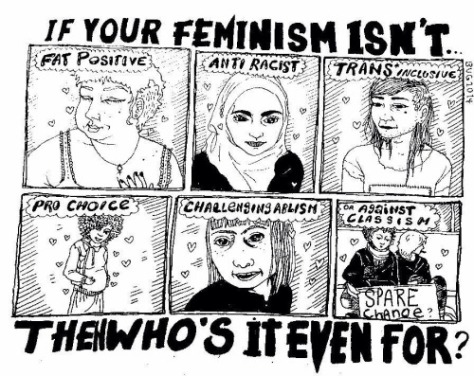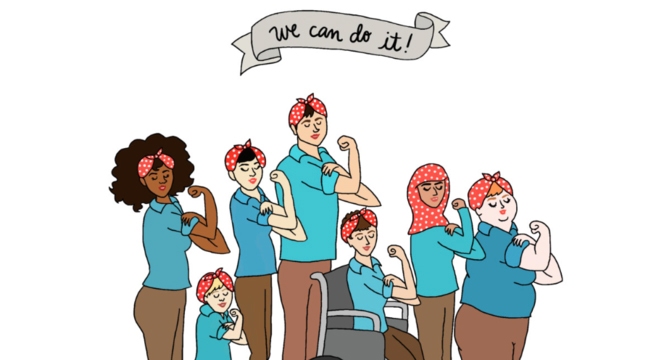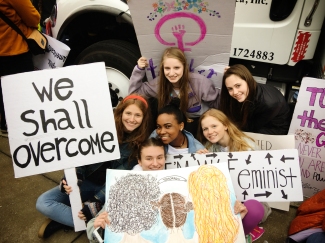To download:
FEMINIST RESOURCE LIST
•••
Why a Feminist Resource List?
Today I’m sharing a project I’ve been working on for a few weeks: a feminist resource list. I had originally planned to release this list with my latest blog entry, coauthored with Joanna Johnson of Red Moon Yoga: “The Misogynist On The Mat: Patriarchy, Yoga, & You.” That blog post was a response to a recent incident in the yoga world, where well-known yoga teacher and teacher trainer Eric Shaw published a misogynist, sexist, and disgusting anti-feminist rant.
Shaw’s rant was so disconnected from the truth of what is and what has been, it was frankly impossible to dissect all the things that were wrong in it. Had Shaw actually wanted to understand reality or feminism rather than cater to his emotionally hurt ego, he over the years he could have found a myriad of feminist work that would have refuted his flawed viewpoints. I doubt he will seek out such resources (though here’s hoping he will).
The incident made me angry. And when I get angry, I make stuff (like this list).

Frankly, Shaw is not someone I would ever waste my time trying to educate. It’s clear he’s not interested in moving beyond his own turmoil.
But there are other people out there who are interested in learning more about feminism, about themselves, and about our world. There are people out there hoping to become better people. There are people out there hoping to uncover and practice satya (truthfulness), and who are willing to engage in some profound Self-Realization.
I have compiled this list for you.
The fact is, even though feminism is gaining prominence in today’s world most people don’t actually know much about feminism, engage with feminists in their everyday lives, or know how to find out more information if they wanted to. It’s not always easy to track down sources, to know what is foundational work in both academia and activist circles, and to learn more about the history of women’s rights, women’s liberation, and intersectional feminism.
Even though it’s likely most people have feminists in their social networks, they might not be consciously aware of this since not everyone who is a feminist openly, consistently identifies as one. Sadly, feminism today is often still stigmatized, and many people (especially white people) selectively disclose their feminist identity only when it is relatively safe to do so. Feminism has in many ways become cool only in-so-far as one’s practice of feminism is surface level and non-confrontational, while deep discussions or political action in the name of feminism are still highly conflict-ridden and controversial. The sad truth is that identifying openly as a feminist can sometimes damage one’s relationships or careers.


Given the wide breadth of feminist work out there today and the many decades (centuries, really) of activism and research feminists have been engaged in, it can sometimes be difficult to know where to start. Even those who are feminists may only be familiar with specialized areas within the movement, because thanks to the sea of information we can sometimes end up isolated from broader dialogue (and heated debates within the movement don’t always help either).
The reality is that unless someone is lucky enough to know a self-identified feminist or has been able to study gender, sexuality, and women’s studies at the university level, many people simply don’t know how to begin learning more about feminism or about the wide variety of feminist work being done. In some ways, there is simply too much information out there. We have google at the tips of our fingers, but unless we know what to search for, the quality of the information we have access to can be skewed, buried in the sea that is the internet today. And of course, let’s acknowledge there is a clear class divide in who has access to university spaces or the internet. It’s vital that feminism become rooted in class solidarity and efforts to overcome the digital divide and the often-times inaccessibility of academic feminism.
Even today, much of our popular culture perpetuates inaccurate and problematic stereotypes of feminism and feminists (or straight up lies). When something is discredited, it’s harder for people to take it seriously. Especially in our current political climate, it’s important for feminists to help combat this by helping to direct and build our own communities of knowledge and of feminist educators. In other words, it is vital for feminists to openly and consistently identify as feminists, to work toward documenting the work movement members are engaged in, to build networks of solidarity and knowledge production, and to participate in codifying such knowledge as explicitly part of the feminist movement.
I made this list to help work toward these goals, and to also make the process of sifting through a sea of information easier for all those interested in learning more about feminism, regardless of whether you are completely new to the movement or a long-time feminist hoping to deepen one’s knowledge. Given my own positionality, this list does lean more heavily toward academic feminist work, but I have made an effort to include a wide variety of sources and more accessible resources throughout. My hope is people who are interested in learning about feminism or deepening their understanding can do so more readily with this resource. I hope it also serves as a resource for fellow educators.
This is the list I wish I had years ago, when I was just beginning to learn what feminism actually meant, the history of the movement, and why it is so vital to continue feminist work today. It is a list I am offering you today, with a prayer to all future feminists.
•••
A Prayer to Future Feminists
I am my ancestors’ wildest dreams, the granddaughter of the witches that did not burn.
I speak as those seeds, who from darkness became the weeds that tear out concrete, that break down walls, the retake public spaces.
I speak as those silenced generations, lost to time, lost to power:
You are not lost to the deepest part of ourselves, that longs for connection, that longs for the wisdom of the one who survives against all odds, the one who (nevertheless) persists.
I speak as those embattled, enraged beings who are sick of the (illusion of the) cage, who are fighting to be free:
Your struggle is not in vain.
For all those who have been disappeared, who have been targeted, who have been harassed, and who have been abused;
For those who have yet to find themselves in the historical oppression patriarchy teaches us to inscribe in all our bodies, in all our minds, in all our hearts:
We will seek you out.
We will be the mirror that allows you to see and free yourself.
For those who would undermine the colonization of their self, for those who would deconstruct the map of power we are subject to;
For those who seek to be better, to leave a legacy of equity for our future selves, for our future planet:
You do not do so alone.
We will be the waves at your back, crying for justice, crashing at the bars set to contain us.
I speak as those who fear for themselves, who fear for each other;
as those who are angry, fed-up, and frustrated;
I speak as those who fear the future coming for us like the whisper of death and the haunting of subjugation, seemingly inescapable:
Do not lose hope.
Remember, the chains that bind us also bind us together.
The chains that bind us give us the very weapon we need to break the cycle.
May we find each other in our resilience, in our strength, in our resistance.
May we recognize that “unity” does not mean sameness, and that “to unify” does not mean to lose what makes us uniquely powerful.
May we recognize imperialist, white supremacist, settler-colonial patriarchy is the enemy of all of us, but also the unifying thread that makes this fight our fight, our struggle.
May we support each other, honor each other, and challenge each other to admit to our failures, flaws, and complicity.
May we support each other, honor each other, and challenge each other to seek out the path with heart even though it may be the tangled labyrinth of our darkest dreams.
Go forth, future feminists, and together let us uncover the bones of justice, the archaeology of equity.
Go forth, future feminists, and be your ancestors’ wildest dreams.
•••

To download:
FEMINIST RESOURCE LIST
Don’t see something you feel should be on the feminist resource list? Post the reference below in the comments, and in the near future I’ll update the list and post a revised version.














I was active in the late 1960s. Maybe do oral history of women from that era before we are all gone. Will look thru list. Betty Friedan & Gloria Steinem must be on there…..they were at forefront in 1960s. Defining feminism is multi-faceted.
LikeLike